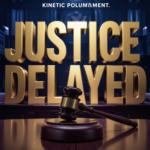Edinburgh faces a critical accommodation shortage as the city’s world-renowned festivals approach, prompting urgent calls from industry leaders for a change in short-term let regulations.
The Festival Accommodation Crisis
As Edinburgh gears up for its globally celebrated festivals, a looming accommodation crisis threatens to dampen the spirits. The city, famed for its vibrant cultural scene, finds itself grappling with a severe shortage of short-term lets due to stringent regulatory measures. The situation has escalated to the point where notable figures, including comedian Jason Manford and TV personality Gail Porter, have voiced their concerns over the skyrocketing costs and dwindling availability of lodgings during the peak festival season.

The crux of the issue lies in the drastic reduction of available beds, a direct consequence of the city’s rigorous licensing and planning restrictions on short-term lets. With only a fraction of the applications granted full licenses, the once-thriving self-catering sector that significantly bolstered the local economy is now under threat. The uncertainty surrounding the approval of applications has led many operators to refrain from advertising for the crucial August period, exacerbating the accommodation scarcity.
The Regulatory Tangle
The regulatory framework that currently governs Edinburgh’s short-term lets has come under fire for its complexity and the financial burden it imposes on operators. The city council’s licensing scheme, which has collected nearly £3 million in fees, stands accused of creating a bottleneck that stifles the supply of short-term accommodation. This has not only affected the self-catering businesses but also raised questions about the efficacy of such regulations in addressing the broader housing challenges faced by the city.
The Association of Scotland’s Self-Caterers (ASSC) has been vocal in its criticism, arguing that the current approach is myopic and fails to consider the wider implications on the housing market. The trade body has long advocated for a balanced regulatory framework that safeguards the interests of local self-catering businesses while addressing the housing needs of the community.
A Call for Balance and Building
The accommodation fiasco has sparked a debate on the need for a more holistic solution to Edinburgh’s housing and tourism challenges. The ASSC has put forth policy recommendations that aim to strike a delicate balance between regulation and growth, emphasizing the importance of building more housing and tackling the issue of empty homes. The trade body’s stance is clear: the path to a sustainable accommodation ecosystem lies not in restrictive policies but in constructive development that benefits all stakeholders.
As the city stands at a crossroads, the outcome of this regulatory debate will have far-reaching consequences for Edinburgh’s cultural landscape and its economic future. The call for change is loud, and the time for action is now.


















